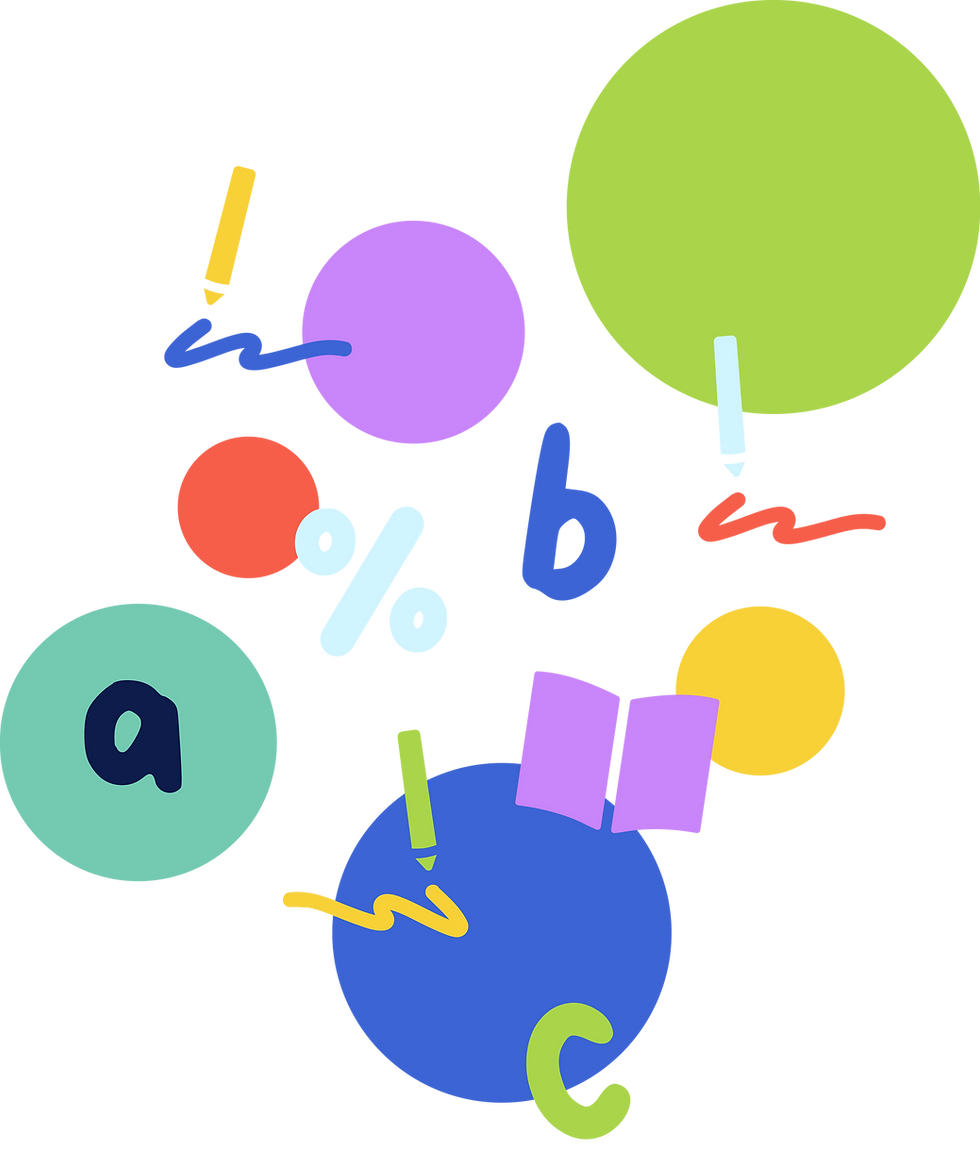
DYSCALCULIA
Empowering children with dyscalculia to master maths.
DyslexAbility provides expert, one-on-one support to help children overcome the challenges of dyscalculia and build confidence in mathematics.



WHAT IT IS
What is dyscalculia?
Dyscalculia is a learning difference that affects a child’s ability to understand and work with numbers. Sometimes referred to as "math dyslexia," dyscalculia impacts number sense, calculation skills, and mathematical reasoning. It can make tasks like telling time, measuring ingredients, or solving equations feel overwhelming.
Dyscalculia is not a reflection of intelligence; it is a neurological difference that requires tailored strategies and interventions to address. At DyslexAbility, we help children develop the tools they need to navigate maths with confidence and success.

WHAT TO LOOK OUT FOR
Signs of dyscalculia.
Does your child experience any of the following?

Difficulty understanding and remembering basic maths concepts.

Trouble recognising patterns, numbers, or sequencing.

Struggles with tasks that involve measurement, estimation, or spatial reasoning.

Avoidance of maths-related activities due to frustration or anxiety.

Frequent mistakes or inability to remember steps in problem-solving.
If these challenges sound familiar, DyslexAbility provides targeted, evidence-based support to help children overcome their difficulties and thrive.

THE EMOTIONS AND EXPERIENCES
Challenges faced by children with dyscalculia.
For children with dyscalculia, navigating a world of numbers can be incredibly challenging. Without the right support, they may face:

Falling Behind in School:
Struggles with maths concepts can affect overall academic performance, across all year levels.

Frustration and Anxiety:
Repeated difficulties with numbers can lead to stress and avoidance of maths tasks.

Low Confidence:
Feeling “bad at maths” can create a negative self-image.

Everyday Difficulties:
Tasks like telling time, following directions, or managing money may feel overwhelming.
At DyslexAbility, we empower children to approach maths with confidence and provide the tools they need to succeed both in and out of the classroom.
If you’re unsure whether your child has dyscalculia, reach out to our team – we’re here to provide clarity and support.

THE PROCESS
Our approach includes:

Confidence building
Encouraging a growth mindset and celebrating progress to help children feel empowered.

Multi-Sensory techniques
Using hands-on tools, manipulatives and visual aids to make abstract maths concepts more accessible.

Step-by-step skill building
Breaking complex concepts into manageable steps to promote understanding and retention through explicit instruction and layered revision.

Comprehensive assessments
Identifying your child’s strengths and specific challenges to create a tailored intervention plan.


BRIGHTER FUTURES
What you can expect.



Improved understanding of foundational maths concepts.
Enhanced problem-solving and reasoning skills.
Reduced anxiety and increased confidence in tackling maths tasks.

THE FACTS
Dyscalculia is a difference,
not a limitation.
Misunderstandings about dysgraphia often lead to frustration and missed opportunities for support. At DyslexAbility, we aim to empower families with knowledge and challenge common myths about dysgraphia:
Myth
Dyscalculia means being bad at maths.

Children with Dyscalculia will never excel in maths.

Dyscalculia affects only academic tasks.

Fact
Dyscalculia reflects difficulties with numbers and maths concepts, not a lack of ability or intelligence.

With the right interventions, children with Dyscalculia can build strong maths skills and confidence.

Dyscalculia impacts everyday activities like telling time, managing money, and spatial reasoning.

By understanding dyscalculia, families can take the first step toward providing the support their child needs to thrive.

OUR IMPACT
Success stories from lives already changed

GET STARTED

Take the first step towards unlocking your child’s potential.
Dyscalculia doesn’t have to hold your child back. With DyslexAbility’s expert support, your child can develop the skills and confidence they need to approach maths with ease. Talk to our team, and together, we’ll create a personalised plan for success.
Subscribe to Our Mailing List
Core Programs
Additional Programs
Who We Help
Success Stories
Resources
Webinars
NDIS
About
Our Partners


